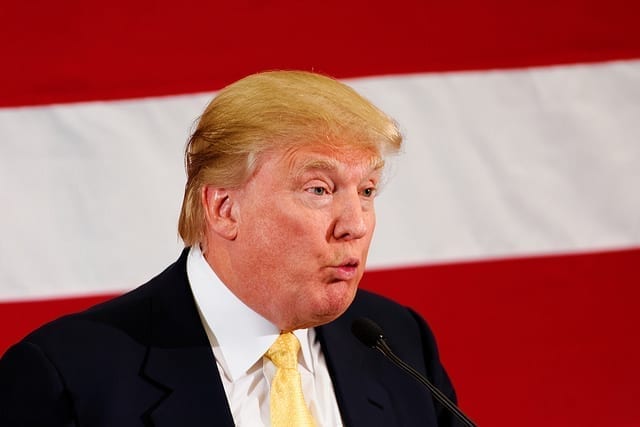The oft-criticized rule would have meant that immigrants who receive any sort of public assistance–no matter the reason–could have been ineligible for green cards or permanent residency.
Less than a day before voting is set to begin, a federal judge in Chicago struck down a controversial Trump administration rule which sought to prevent immigrants who have received public benefits from obtaining green cards.
The Associated Press reports that U.S. District Judge Gary Feinerman struck down the rule on Monday, saying it violates the Administrative Procedure Act. Under the APA, federal agencies must remain accountable to the public by outlining detailed processes and explanations for proposed regulations.
As the A.P. notes—and as LegalReader’s reported before—Feinerman’s ruling adds another layer of complexity to what has already been a long and hard-fought case.
The so-called “public charge” rule has attracted extensive criticism and may be considered among the Trump administration’s most aggressive anti-immigration measures to date. While U.S. law has long allowed citizenship and immigration officials to deny residency and other benefits to migrants who pose a “burden” to American taxpayers, President Trump sought to expand the definition of what, exactly, constitutes a burden.
If allowed to take effect, immigrants who have availed any number of public benefits programs—from food stamps to subsidies meant for single mothers—could be indefinitely banned from obtaining green cards or permanent legal residency.
Fred Tsao, senior policy counsel for the Illinois Coalition of Immigrant and Refugee Rights—which filed the lawsuit alongside Cook County—said Trump’s proposed rule is an “attack” on legal immigration. Tsao also told The Associated Press that, regardless of what happens on November 3rd, he hopes the next presidential administration will take a more balanced, more human approach to immigration policy.

“We may or may not get a new administration,” Tsao said. “If we do, I’d like to see a lot of this damage undone and hopefully some legislative changes that will actually benefit immigrants instead of scaring them away.”
Cook County also stressed the importance of public benefits accessibility amidst the ongoing coronavirus pandemic.
“As we all continue to be impacted by COVID-19, it is vital that no one is fearful of accessing health care,” Cook County Board President Toni Preckwinkle said in a statement. “The court’s decision to block enforcement of the Public Charge Rule re-opens doors for immigrants to access vital services like health care.”
The Associated Press notes that the Supreme Court ruled 5-4 in January that the rule could take effect, although the justices did not halt or override the lawsuits pending against it.
U.S. Citizenship and Immigration Services spokesman Dan Hetlage said that the agency, which is responsible for approving green card and residency applications, will comply with Feinerman’s order.
“USCIS will fully comply with the decision and issue additional forthcoming guidance while the agency reviews the decision,” Hetlage said.
Sources
Illinois Federal Judge Vacates Public-Charge Immigration Rule


Join the conversation!